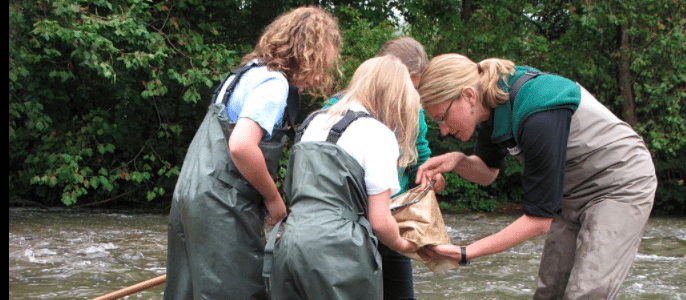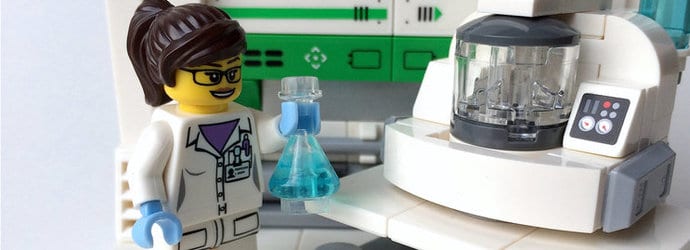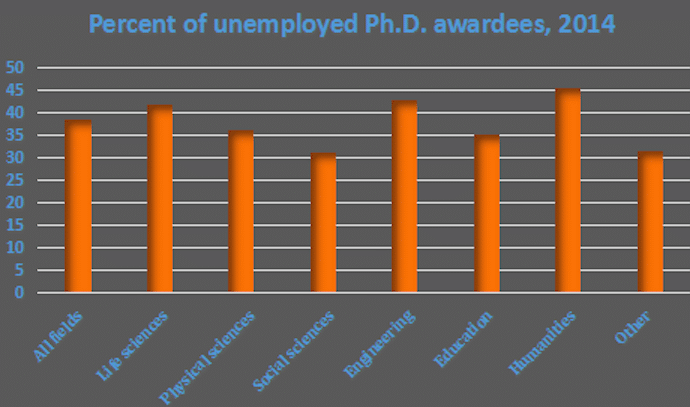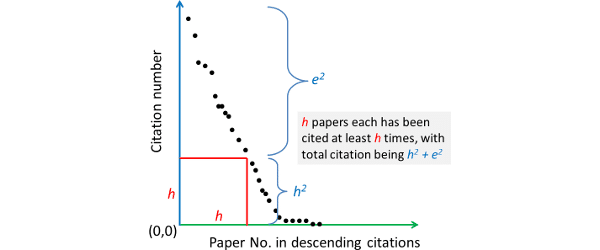Postdoc Interview Preparation: Sample Questions and Answers to Ace Your Interview
Are you trying to prepare for an interview but not sure what sort of questions you’ll get asked? Check out our top 10 Postdoc interview questions to help you prepare.
Join Us
Sign up for our feature-packed newsletter today to ensure you get the latest expert help and advice to level up your lab work.

Are you trying to prepare for an interview but not sure what sort of questions you’ll get asked? Check out our top 10 Postdoc interview questions to help you prepare.

Thinking of doing a PhD? Here are some essential considerations from a PhD graduate to help you decide whether or not getting a PhD is worth it.

Discover more about biocuration, why it’s so important, and what it takes to become a biocurator. It turns out that biocuration as a career choice is easier than you might think!

Interested in a career in bioinformatics? We’ve got the lowdown on the ways bioinformatics skills can be used, and the training you’ll need to pursue this career path.

Want to leave the lab but not sure what alternative career options are available? Our guide can help you decide what to do after hanging up your lab coat.

If you’re coming to the end of your undergraduate life sciences degree, you might be wondering what to do next. Fortunately, there are many life sciences career paths that you could take. We explore some of the options here.

Are you busy applying for your first biotech or life sciences job? Or are you thinking about a postdoc? Whatever your next steps, you’re likely to face an interview. Here we’ll guide you through some of the common questions and situations you might find yourself having to deal with in a life sciences interview.

If choosing between a PhD or a Master’s has you frazzled, don’t panic. We weigh the pros and cons of both in terms of time, money, and career prospects.

Growing up in Australia, I remember a common phrase: ‘only in America’. Sometimes this was in reference to bizarre cultural events or phenomena but it was generally accepted that the USA was an extraordinary place, where everything was bigger, brighter, and more outrageous. America has fostered a culture of big ideas and innovation, partly because…

Universities are often organized by faculties, colleges, schools, and/or departments. So, as an academic, you often work closely with colleagues studying similar subject areas. A common interest, however, often transcends the boundaries of this organizational structure. Enter scientific special interest groups. What Are Scientific Special Interest Groups? Scientific special interest groups are member-led initiatives within…
Transitioning from a PhD in Biotechnology to the industry of my choice (scientific communication and marketing) involved an intense period of application and rejection. Every time I got a rejection letter, I feared that the industry probably did not want fresh graduates like me, that they wanted someone with years of experience. These were moments…

There are many examples of the impact of physician-scientists on translational research. Dr Barry Marshall swallowed a steaming culture of Helicobacter pylori which eventually resulted in antibiotics curing peptic ulcer disease. However, the process of training these individuals is as effortless as training fish to ride bicycles. Our journeys into the laboratory have been equally…

Obtaining your doctorate is one of the toughest academic and professional tasks that you can take on. The stats on future employment in academic science careers are horrifying at worst or misleading at best. At the same time, many argue that we need more scientists with a PhD.1,2 With these statistics, it might be time to…

A lot of people today are drawn to freelancing and want to become a freelance writer. There are great benefits when you work from home (like doing work in your pajamas) or wherever you feel most comfortable. The appeal is even greater when you count in that you make your own hours and you are…

According to Bill Nye, “Science rules!” – and I think most of us would agree. We are learning more and more about the world around us each day, as well as about ourselves. But is there a difference between a Science Fan, and a Scientist? Everyone has their own parameters, but below are some that…
Scientific meetings provide an opportunity to learn, network, and explore new ideas. They are also an exciting break from the usual lab routine. Although organizing a Departmental or Institutional academic event takes up your research time, the experience helps develop leadership, project and budget management, and problem solving skills that will make your CV shine….
Your grad school acceptance letter finally came in the mail. Congrats, that’s no small thing to accomplish! You did your happy dance, but then it hit you: Grad school in the fall is a reality and things in your life are going to change. So now you’re wondering how to fill those awkward months between…

Are you finishing up your PhD and starting to think about the next step? It can be overwhelming to consider all of the personal and professional aspects involved in deciding and beginning this next stage of your career journey. With personal perspective from someone who has been there, here are some tips on how you…
You have a nicely baked research project, all set and ready to tempt the world. Then comes an afterthought. It needs some spice, decoration, and even more. As a young or mature scientist your work is often confined to a niche area, riddled with scientific jargon, and confined to intellectual circles. In the 21st century…
Ever wanted to go to a conference, but don’t know what to expect, which one to go to, or how to even begin to ask your boss to let you attend a conference? Look no further! I have some suggestions on how to choose from the many great scientific conferences out there, how to get…

Why do we need scientific collaboration? There is no science without collaboration: science is incredibly social. When you publish a paper or even a conference abstract, you collaborate with editors or a committee to produce an outcome (successful journal or scientific event) together. So, you have to understand the principles of collaboration even if you…

Academia or industry? Basic research or applied research? You are thinking of what to do next. What is right for you? Honestly, it is a never ending discussion. So what should you do? Here are some insider tips from a person who has worked in both biotech industries and universities. The Freedom to Manage your Own…

If there is one profession that benefited from globalization, it is the medical writer. While the university research groups shrink and global biomedical companies fire their research stuff, medical writing companies are expanding, providing stable jobs with good salaries. The American Medical Writers Association (AMWA) reported in 2011 that the median salary of an experienced…

Scientific research is a demanding and stressful career requiring lots of patience, dedication and hard work. Sadly the monetary benefits are not commensurate with the effort. Moreover, lack of opportunities, uncertainty, instability and the pressure to publish makes a traditional academic science career difficult. Inspiring (forcing?) many scientists and researchers to leave their traditional science…

Nowadays, it is no longer absolutely true that applying for a PhD means that you are striving for an academic position in the future. Although a majority of graduate students are certainly still aiming for a career in academia, and will thus benefit from doing a postdoc or two, more and more graduates are pursuing…
A recent article published in Nature, The future of the postdoc, painted a very bleak picture of how there is a “growing number of post-docs and few places in academia”, a concern that I am very much familiar with. As an Early Career Research Scientist, nearing the end of my first post-doc, I am faced…
A cover letter is a letter written to accompany a job application, a grant application, project reports, manuscripts, etc. that explains the purpose of your writing and incorporates certain key points of your application. It plays a decisive role in accomplishing the task it’s been written for, which is why it is so important to…

The gap year I intended to take between my Master’s degree and hypothetical Ph.D. is now going into its 4th year. Here’s why I’m not worried. These days it seems like undergraduates are proceeding en masse to graduate programs shortly after completing their senior year of college. An abundance of undergraduate research opportunities and poor…
Ask a scientist why they love their job, and they will likely tell you it’s because they get to see and discover amazing things! Why, then, does science class in school never reflect this? A major problem identified in our society is lack of science interest and literacy. Mobile labs are helping to turn the…

Graduate students in the United States are privileged when it comes to picking their prospective labs: most programs have student rotate through several laboratories to help them choose their PhD lab. Here are some suggestions for questions to ask.

In the frenzy of today’s scientific publication landscape, it is essential to take a proactive stand at your online visibility and reputation. There are online tools that can help you make yourself spotted and translate your hard work and high-quality science into actual impact. So if you are interested in improving your chance of landing…

Choosing a PhD topic can be very hard. There are a lot of things to consider from the subject to the supervisor. Here are some tips to help you choose. Find out what you really like This is the first topic because it is the most important. My first advice would be to get some…

If I had a barrel of apples for each time I’ve heard one of my classmates or friends say, “Oh, I want to work in a lab, but I don’t know how to find one” I could build a moon base out of apples. Working as an undergraduate will help you land sweet internships, look…

Clinical Trial Coordinator, Clinical Study Coordinator, and Clinical Research Coordinator are all names for the same job and refer to the person responsible for the day-to-day running of human trials. Usually when I tell someone that I’m a Clinical Study Coordinator, they have no idea what that means. I guess it’s like when someone tells…
I have been working and managing flow cytometry core facilities in Cambridge for 10 years and I would like to share with you some of my experiences. I have worked up the career ladder in the past 10 years and in 2012 I became the Head of Flow Cytometry at Babraham Institute. This means that…
Whether as a summer intern, exchange student, MSc, PhD or post-doctoral student, working abroad can be one of the many perks of working within the sciences. Although these experiences will often require substantial planning in advance, there are funding opportunities and many receptive destinations around the globe. During my undergraduate degree, graduate studies hadn’t been…
As a graduate student or PhD scientist you are likely to be surrounded by plenty of career advice and options – that is, if you’re interested in a career in academic research or the biotechnology and pharmaceutical industries. Those of us who aren’t sold on either of those fields are left wondering what other career…

During my second year in graduate school, I (silently) started freaking about life post-PhD. I read voraciously about science writing, scientific editing and business consulting positions. I went to seminars offered by the career center at my school. But, I was still lost. Between all the pipetting and PCRs, I could not figure out what…

You’re applying for your first tenure-track position, and you’ve heard that your dream department uses something called the h-index to decide who will get interviews. It’s an increasingly common scenario: institutions are now regularly using the h-index to help make hiring and promotion decisions, especially when they have to screen many applicants. For that reason,…

An ad about a Technical Officer position is usually nebulous. For example: “The post holder work as part of a technical team and provide both routine and specialist services in support of undergraduate, postgraduate, outreach and revenue-earning activities.” What Does a Technical Officer Do? In fact, a technical officer role can be summarized in two…

The eBook with top tips from our Researcher community.